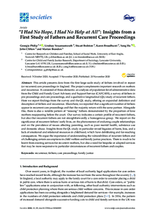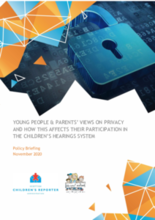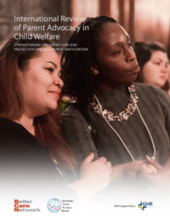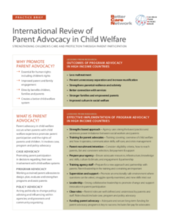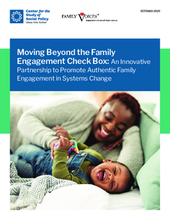This section highlights resources focused on the participation of parents and caregivers in decisions about children's care, including decisions about their own children and their placement in alternative care, as well as advocacy efforts to reform systems of care and protection for children.
Displaying 31 - 40 of 98
The authors of this study examined legal understanding and attitudes among 201 parents involved in ongoing dependency cases in California and Florida via semi-structured, in-person interviews.
This article presents data from the first large-scale study of fathers involved in repeat (or recurrent) care proceedings in England. The study consisted of three elements: an analysis of population-level administrative data from the Child and Family Court Advisory and Support Service (CAFCASS), a survey of fathers in pre-proceedings and care proceedings, and a qualitative longitudinal (QL) study of recurrent fathers.
This article studies how three groups of professional decision-makers – child welfare workers, experts on children and judges – exercise discretion in decisions on adoption from care in the Norwegian child welfare system.
In order to fully understand the relationship between privacy and confidentiality in the Children’s Hearings System, this research explored three broad questions: (1) How privacy and confidentiality impact on the participation of young people and their parents and carers in the Children’s Hearings System, (2) What is the relationship between advocacy and privacy and confidentiality, (3) And what solutions could be found to help young people and their parents and carers be heard and involved in decision making.
Promoting parent and child participation is central to achieving children’s rights. This review of the literature and program documentation presents evidence on the role of parent advocacy in achieving better outcomes for children and their families in child welfare.
This Practice Brief accompanies the International Review of Parent Advocacy in Child Welfare: Strengthening Children's Care and Protection Through Parent Participation.
The International Parent Advocacy Network (IPAN) and Rise have developed this toolkit for advocacy by parents whose families have been harmed by child welfare systems worldwide
This systematic review synthesizes information about the relationships aging out foster youth have with their birth or stepparents after legally mandated separations in foster care.
This article deals with the issues of family assistance from the perspective of working with the biological family of a child placed in foster care.
This case study examines the partnership that the Center for the Study of Social Policy (CSSP) and Family Voices undertook to create and implement a process for engaging families in the Pediatrics Supporting Parents (PSP) national initiative to promote the social and emotional development (SED) of young children.

